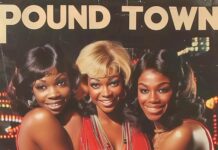
*Like the children of Israel, God tests and refines with fire to bring out the best in us like silver and gold [Ref: Zechariah 13:9]. If He did it to ‘the apple of His eye’ who are we to expect otherwise?
Great things come out of hardship. Here’s the backdrop of two comparable defining moments in history that took America through hell and back again for the better.
Along with the influence of the church, I’ve come to view Motown music and the Civil Rights Movement as change agents in the 20th century, similarly to the Civil War and the Blackface art form in the 19th century. There were very significant milestones leading up to both moments in Black American history. When you really look at the timelines, there are some parallels.
For instance, historians record that the first shot fired that signaled the beginning of the Civil War was in 1861. It drew national attention. One hundred years later in 1961 Motown got its first number one Pop hit with ‘Please Mr. Postman’ that also drew national attention and signaled a new era. The Civil War had President Lincoln at the helm; the Civil Rights Movement had President Kennedy. Both were assassinated. Both had historical figures in their midst fighting for what they believed – General Lee Grant, General Robert E. Lee, Frederick Douglass and a host of others during Lincoln’s time; and Martin Luther King Jr., Malcolm X, Sheriff Eugene “Bull” Connor, and Governor George Wallace along with a host of others during Kennedy’s time. All were faced with culture-changing challenges.
While the Civil War was drenched in deadly violence (think of Gettysburg) and the ground-shaking boom of cannon balls, the Civil Rights Movement was about non-violence, and the only ground-breaking/shaking boom (besides the Birmingham church bombing) was coming from the drum and bass in Motown’s Studio A.
During the Civil War the Blackface Minstrel show – an imitation and often offensive exaggeration of Negro music – was popular, but just like Motown did 100 years later, the minstrel show allowed for cross-cultural collaboration and widespread appreciation of the Negro’s contribution to the arts. It was also considered to be the first distinctly American theatrical form.
As a tribute, re-enactments of Civil War battles are staged annually. In 1913 the first major Civil War veteran’s reunion took place. One hundred years later in 2013 Motown veterans were invited to a “Family Night” preview of Berry Gordy’s ‘Motown: The Musical’ in New York. At the 1913 reunion President Woodrow Wilson said, ‘We have found one another again as brothers and comrades in arms, enemies no longer, generous friends rather, our battles long past, the quarrel forgotten – except that we shall not forget the splendid valor.’ The spirit and sentiment of his words could just as well been spoken by Gordy as together they all witnessed the re-enactment of the miracle that took place on Detroit’s West Grand Boulevard.
Larry Buford is a Los Angeles-based freelance writer. Author of “Things Are Gettin’ Outta Hand” (Steuben Pub) www.amazon.com. E-mail: [email protected] Visit the author at www.larrybuford.com. (213) 220-8101
We Publish News 24/7. Don’t Miss A Story. Click HERE to SUBSCRIBE to Our Newsletter Now!





